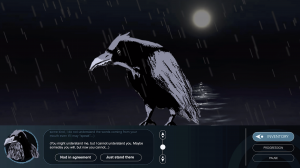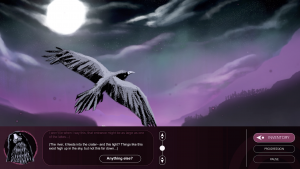Children of the Tree | A Game of Voices and Languages
Communication is key in our everyday lives, as such it is essential that we can convey our thoughts with a language.
Our first project is focused on the topic of languages, specifically in relation to Calls to Action #13 to #16 as reported by the Truth and Reconciliation Commission of Canada. These calls to action ask the government to address Aboriginal language rights, its protection as well as its revitalization and the creation of educational language programs.
Serving as a foundation for the project, we then proceeded to research about various Aboriginal language groups and the history revolving around them. Our findings indicated that many language groups have and are still facing endangerment or extinction as a result of the residential school system. Many languages were lost but those that still exist are being revitalized through many efforts.
We also researched these various language groups in the process.
With this research in hand, we proceeded to develop a strategy to share a message with the public. We eventually came up with the idea to create a concept for a game to inform players about Aboriginal languages. We aimed to give the incentive to support revitalization efforts with this strategy.
Initially we wanted to develop a fully functional game using Scratch, however we decided to scrap the idea due to technical difficulties and stick with a concept instead. Regardless, we knew that Indigenous languages had to be incorporated into the final result from the start. We then began ideations for the game’s narrative inspired by stories from First Nations cultures, such as the example below:
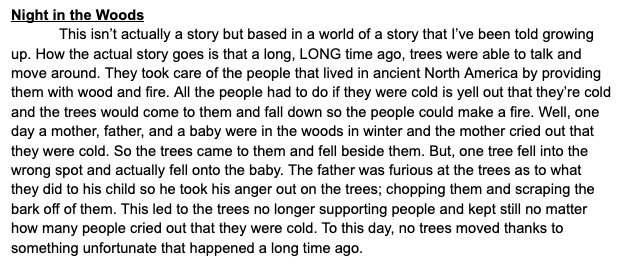
We then decided to use excerpts from each idea as part of a larger narrative, where we kept our goal of educating players on Aboriginal languages, their history and revitalization efforts.
The main plot revolves around a fisherman, who- with a Raven’s help- sets out to look for their family who recently disappeared:
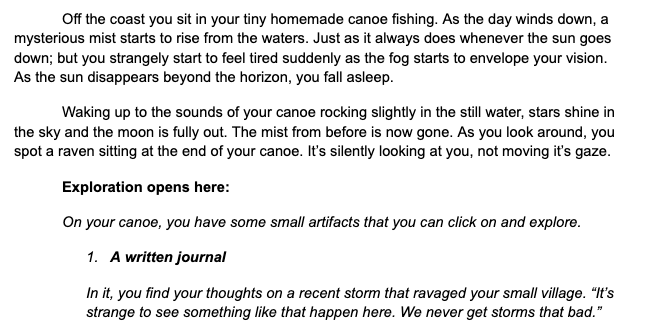
After tackling the narrative, we then went ahead with developing the gameplay (which we summarized as a “point and click exploratory visual novel”. We also thought of visual, aesthetic choices in terms of characters, user interfaces and environments. Sounds were also considered at this stage. Concept pieces were also developed to help us get a general idea of the visuals along with various moodboards:
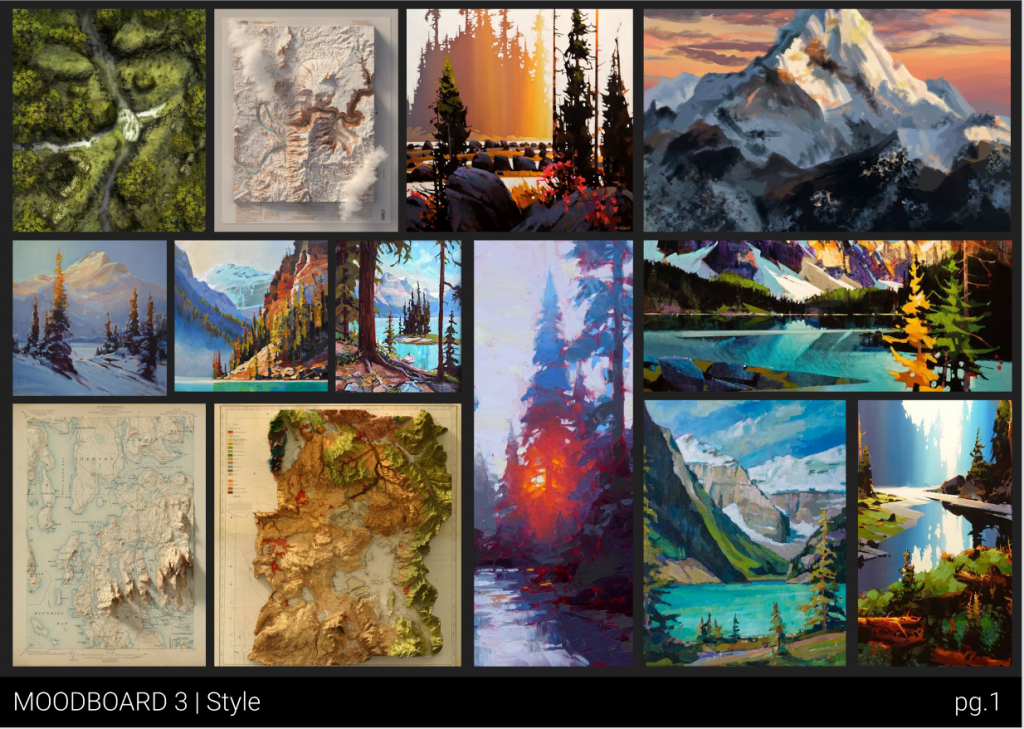
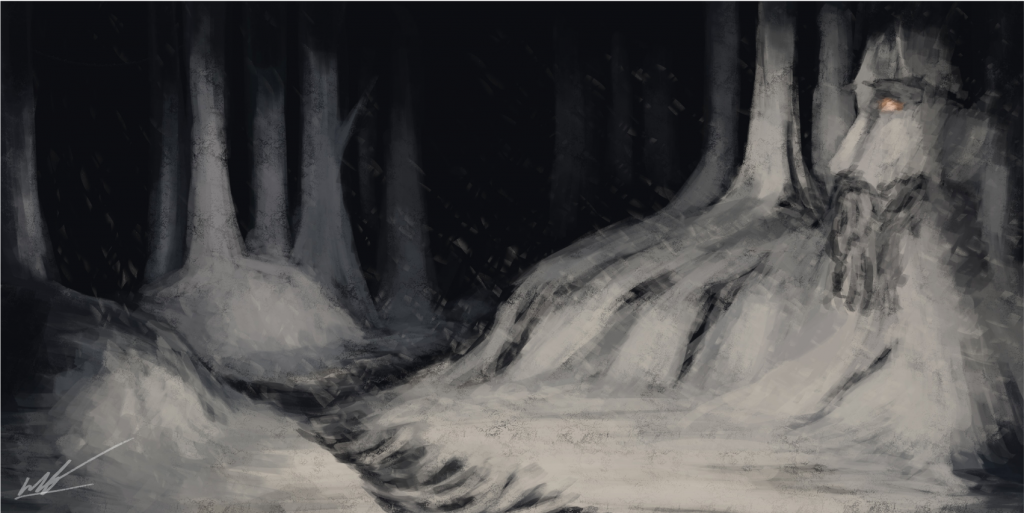
Concept by Harlen Bertrand 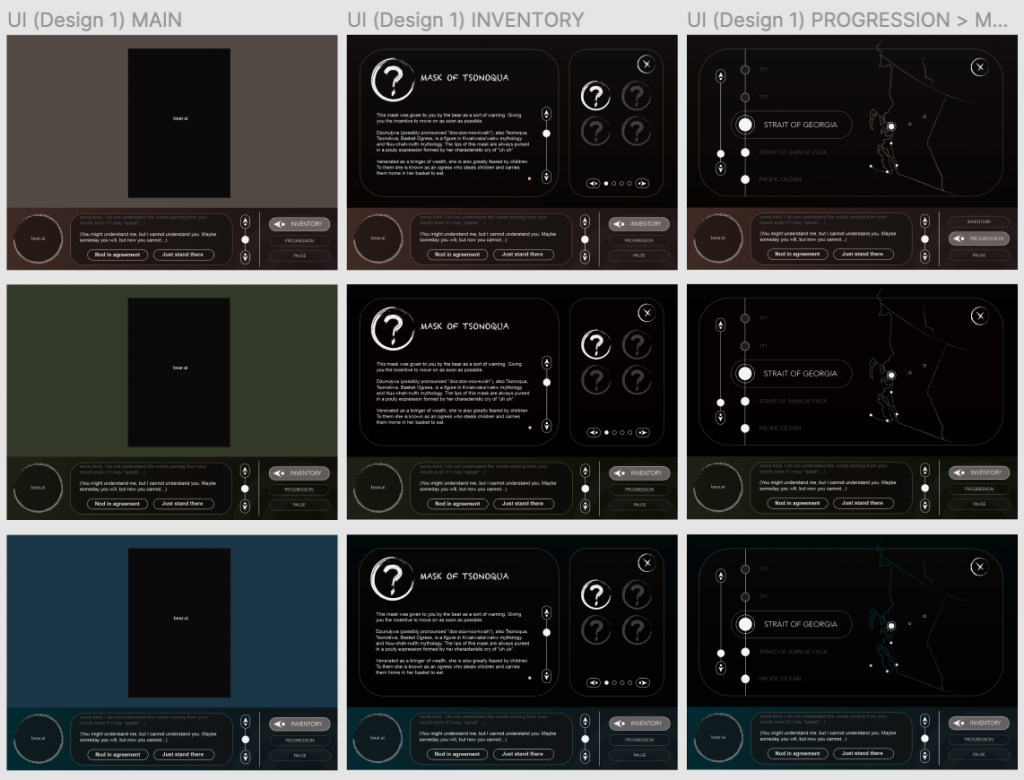
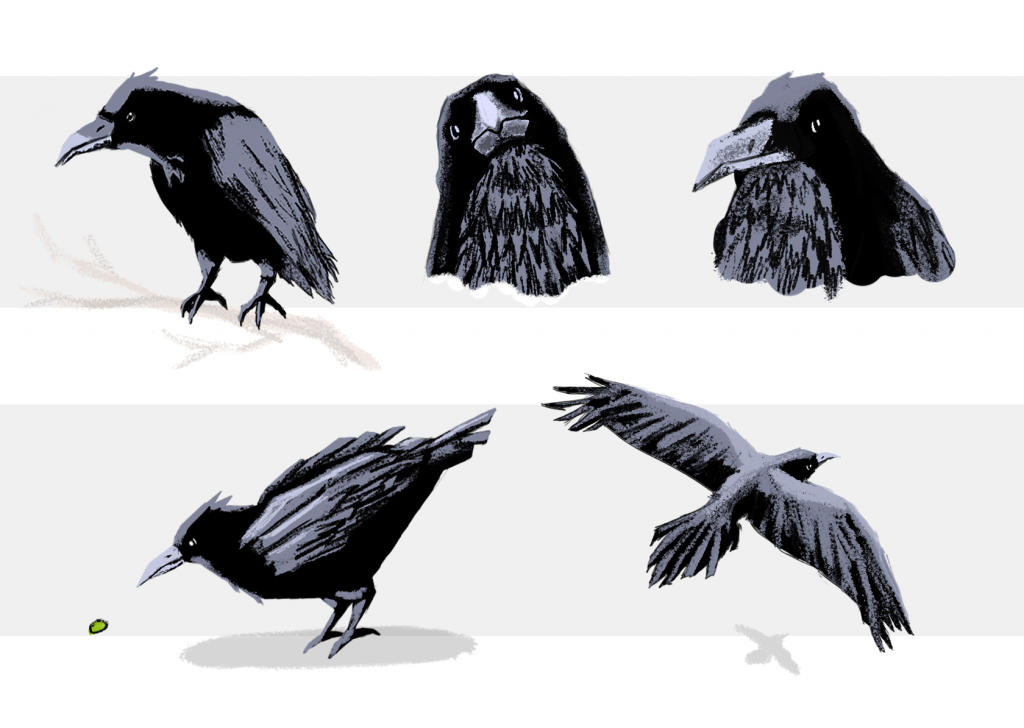
These were later incorporated into a refined concept, with game screenshots such as the ones below:
A video was also produced to assist in conveying the ambience of the environments:
My contributions to the final concept were to the game’s UI and characters– while Harlen handled environment concepts, as well as assembling the video and game screenshots. The end result is the video itself, as well as a presentation to summarize the entire process.
In short, it was quite the experience to conceptualize a game to this level of finish, and I personally believe that we pulled it off greatly.
A job well done!
